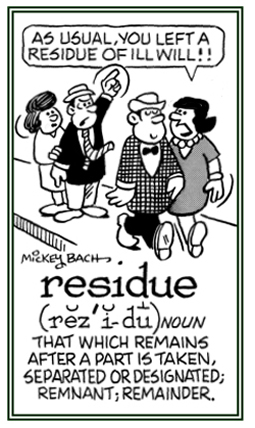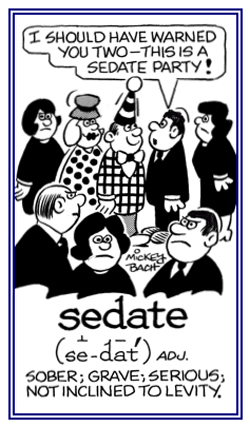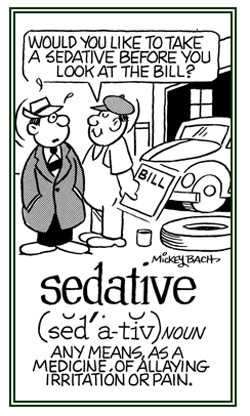sed-, sedat-, -sid, -sess
(Latin: sit, sitting)
2. To be inherently present; to exist: There is a potential energy that resides when water is flowing.
3. To be vested, as a power or right: The government recognizes the authority that resides in the Supreme Court."
4. Etymology: from Old French resider, "to settle; from Latin residere, "to remain behind, to rest"; from re-, "back, again" + sedere, "to sit".
2. A structure serving as a dwelling or home; especially, one of large proportion and superior quality: Ted and Irene have a summer residence in on the California beach.
3. The act or fact of residing.
4. The act of living or staying in a specified place while performing official duties, carrying on studies or research, waiting for a divorce, etc.
5. The time during which a person lives in a place: Margaret was a residence in the neighborhood for five years.
6. The location of the main offices or principal center of business activity of a commercial enterprise; especially, a large corporation; which is registered under law.
2. Usually a place where people live and have their home.
2. A physician who joins the medical staff of a hospital as a salaried employee for a specified period to gain advanced training; usually, in a particular field, being in full-time attendance at the hospital and often living on the premises.
3. A diplomatic representative, inferior in rank to an ambassador, living in a foreign embassy.
4. Something which is encoded and permanently available to a computer user, as a font in a printer's ROM or software on a CD-ROM.
5. A computer program that is currently active or being available in a computer memory.
2. Referring to a place where a person lives for a long time.
3. Pertaining to working, studying, or staying in a place for mental or any medical care: Joan has been receiving treatment at the residential rehabilitating center while her hip operation is healing.
2. A payment made to performers, writers, or directors for each repeat showing of a recorded television show or commercial.
3. Remaining after the majority of something has been removed; for example, residual dampness.
4. In geology, the material that is left after the weathering of a rock has removed its soluble constituents.
2. Relating to or indicating a remainder: There was a residual amount of work that had to be completed before the contractor could say that the house was ready for the new tenants.
2. In law, the remainder of a testator's estate after all claims, debts, and bequests are satisfied: Grace left the residue of her estate to her daughter after having all the financial obligations taken care of.
3. Etymology: from Old French residu, from Latin residuum, "a remainder", from residuus, "remaining, left over", from residere, "to remain behind"; from re-, "back, again" + sedere, "to sit".

Go to this Word A Day Revisited Index
so you can see more of Mickey Bach's cartoons.
2. A session, meeting, or sitting, as of a learned or legislative body: The last seance of the state legislature left many members still dissatisfied with the results of the presentations and the voting that took place later.
Historical background
The origin of the term séance comes from French séance, “seat, session”, from Old French seoir, “to sit”.
In French, as in English, séance came to be used specifically for a meeting of people to receive spiritualistic messages (a sense first recorded in English in 1845), but earlier in French and English, the word was used more generally for meetings.


Go to this Word A Day Revisited Index
so you can see more of Mickey Bach's cartoons.
2. A portable enclosed chair for one person, having poles in the front and back and carried by two other people; a sedan chair.
In the 17th and 18th centuries, an enclosed chair carried by porters at the front and the back on two long poles passed through handles on the sides of the box.
3. Etymology: of uncertain origin; however, it has been suggested that the word was borrowed from a Southern Italian dialect and is a derivative of sede, "chair"; from Latin sedes which is related to sedere, "to sit".2. Peaceful and quiet: Jeremy and his family are living in a more sedate neighborhood now compared to the noisier one they were in before when they were the city.
3. Etymology: from Latin sedatus, "composed, moderate, quiet, tranquil"; "to settle, to be calm" from sedere "to sit".

Go to this Word A Day Revisited Index
so you can see more of Mickey Bach's cartoons.
2. Characterized by being done with little energy.
2. A medicine that allays irritability or excitement or lowers functional activities: Most sedatives, or tranquilizers, can promote sleep.
The overdosage of a sedative can lead to dangerous respiratory depression or slowed breathing.
Some sedatives can dangerously depress important signals needed to maintain heart and lung function if they are misused, or accidentally combined, as in the case of combining prescription sedatives with alcohol.
Many sedatives also have addictive potential; so for these reasons, sedatives should be used under medical supervision, and only when definitely needed.
3. Etymology: from Medieval Latin sedativus, "calming, allaying"; from sedat- and sedare, sedere, "to sit".


